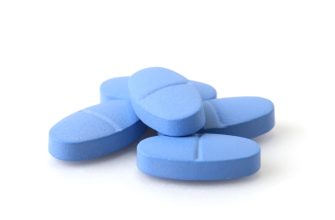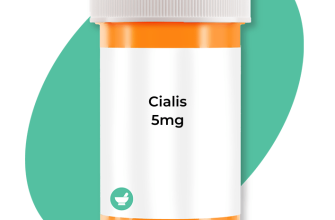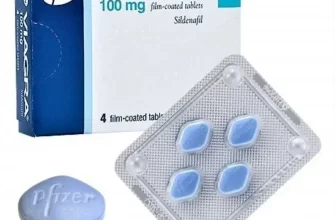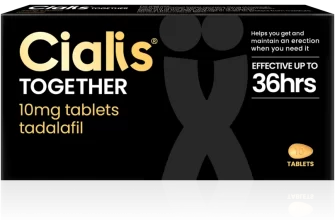Need prescription medication? Start by verifying the pharmacy’s license with your state’s board of pharmacy. This simple step significantly reduces the risk of encountering illegitimate operations. Always check their physical address and contact information for verification.
Legitimate online pharmacies operating within US regulations adhere to strict standards. They require valid prescriptions from licensed physicians. Before ordering, ensure your doctor’s prescription is readily available for verification. This protects you from potential fraud and guarantees the authenticity of your medication.
Look for pharmacies that display their accreditation information prominently. The Verified Internet Pharmacy Practice Sites (VIPPS) accreditation is a reliable indicator of compliance with US pharmacy laws and standards. Pharmacies with this accreditation have undergone rigorous vetting processes, ensuring medication safety and patient privacy.
Remember: Price should not be your primary deciding factor. Unusually low prices often signal counterfeit or substandard medications. Prioritize safety and regulatory compliance over cost savings. Choose reputable pharmacies with transparent pricing policies.
Secure online transactions are paramount. Ensure the pharmacy utilizes HTTPS encryption and offers secure payment methods. Avoid pharmacies requesting payment through methods lacking sufficient security protocols, protecting your personal and financial information.
- Legal USA Online Pharmacies: A Comprehensive Guide
- Verifying Legitimate Online Pharmacies
- Look for Accreditation
- Secure Transactions are Key
- Pharmacist Consultation Matters
- Discreet Packaging and Shipping
- Customer Service is Crucial
- Requirements for a Valid Online Pharmacy Prescription
- Commonly Prescribed Medications Available Online
- Commonly Prescribed Medications for Heart Health
- Commonly Prescribed Medications for Diabetes
- Protecting Yourself from Counterfeit Medications
- Understanding Online Pharmacy Costs and Insurance Coverage
- Navigating the Legalities of Importing Medications
- Reporting Suspicious Online Pharmacies
Legal USA Online Pharmacies: A Comprehensive Guide
Verify a pharmacy’s legitimacy through the National Association of Boards of Pharmacy (NABP) Verified Internet Pharmacy Practice Sites® (VIPPS) program. This accreditation ensures adherence to strict standards of safety and patient care.
Always check for a physical address and contact information. Legitimate pharmacies are transparent about their location and readily available for communication. Avoid sites lacking this basic information.
- Look for a secure website (HTTPS). A secure connection protects your personal and financial data.
- Review the pharmacy’s licensing and accreditation information. Independent verification of these credentials is key.
- Read customer reviews from reliable sources, paying attention to details about order fulfillment and customer service.
Understand prescription drug regulations. Only pharmacies licensed to operate in your state can legally fill your prescriptions. Confirm this information before placing an order. It’s also crucial to understand state and federal regulations concerning controlled substances and online ordering.
Be wary of suspiciously low prices. Unreasonably cheap medications may be counterfeit or substandard. A slightly higher price often indicates genuine products and a legitimate business.
- Carefully review the pharmacy’s privacy policy to understand how they handle your personal data.
- Never share your credit card information on unsecure websites.
- Report suspicious pharmacies to the relevant authorities, such as the FDA or state board of pharmacy.
Consult your physician before ordering medications online. They can help you determine if online pharmacies are suitable for your specific needs and provide guidance on safe medication practices.
Use caution with international online pharmacies. These often lack regulation and oversight present in US-based businesses; quality and safety can’t be guaranteed. Stick to pharmacies verified through the NABP VIPPS program for reliable service.
Verifying Legitimate Online Pharmacies
Check the pharmacy’s license and registration with your state’s board of pharmacy. This verifies they’re legally operating. You can usually find this information on their website, easily accessible and clearly displayed.
Look for Accreditation
Seek out accreditation from reputable organizations like the Verified Internet Pharmacy Practice Sites (VIPPS) program. VIPPS accreditation signifies adherence to rigorous standards for online pharmacy practices. This validation provides extra assurance of their legitimacy and safety.
Confirm the pharmacy’s physical address. A legitimate pharmacy will have a verifiable street address; avoid those with PO boxes only. A physical location indicates accountability and easier contact if issues arise. Their contact information should be readily available, including phone numbers and email addresses.
Secure Transactions are Key
Ensure the website uses HTTPS protocol, indicated by a padlock icon in your browser’s address bar. This protects your personal and financial data during transactions. Verify their security measures, and look for customer testimonials and reviews from credible sources, like independent review platforms. Avoid pharmacies with excessively low prices – this often signals suspicious activity.
Pharmacist Consultation Matters
A reputable online pharmacy provides a consultation with a licensed pharmacist before dispensing medications. This ensures appropriate medication selection and helps avoid potential drug interactions. If you can’t interact with a pharmacist, it’s a significant red flag.
Discreet Packaging and Shipping
Check their privacy policy. Reputable pharmacies prioritize discreet shipping and packaging to protect patient confidentiality. Their privacy policy should clearly state their commitment to protecting your information.
Customer Service is Crucial
Test their customer service. A quick response time and helpful assistance reflect a committed and reliable online pharmacy. Check their return policy as well; a solid policy indicates confidence in their products and services. Remember to carefully read all terms and conditions before ordering.
Requirements for a Valid Online Pharmacy Prescription
Ensure your prescription originates from a licensed medical professional within the US. This means a doctor, physician’s assistant, or nurse practitioner authorized to practice in your state and able to prescribe medications.
The prescription must include your full name and date of birth, matching your identification. Any discrepancies will delay or prevent fulfillment.
Clearly identify the medication’s name, dosage, quantity, and administration instructions. Ambiguity leads to errors.
The prescription needs the prescribing doctor’s name, DEA registration number (if applicable), and contact information. This allows for verification.
A valid prescription requires a clear prescription date, ensuring it’s not expired. Expired prescriptions cannot be filled.
The online pharmacy must verify your prescription with the prescribing doctor’s office or a designated state-approved verification system.
Many online pharmacies require a copy of your photo ID for verification purposes; provide this to prevent delays.
Be aware that some controlled substances require extra verification steps. Understand the regulations for your prescription.
If you have questions about your prescription’s validity, contact your doctor or the online pharmacy directly before ordering.
Commonly Prescribed Medications Available Online
Legitimate online pharmacies offer a convenient way to access many commonly prescribed medications. Always verify the pharmacy’s legitimacy before ordering.
Commonly Prescribed Medications for Heart Health
- Statins: Like atorvastatin (Lipitor) and simvastatin (Zocor), used to lower cholesterol.
- Beta-blockers: Such as metoprolol (Lopressor) and atenolol (Tenormin), used to treat high blood pressure and other heart conditions.
- ACE inhibitors: Including lisinopril (Prinivil, Zestril) and ramipril (Altace), commonly prescribed for hypertension and heart failure.
Commonly Prescribed Medications for Diabetes
- Metformin: A common first-line treatment for type 2 diabetes.
- Insulin: Various types are available, requiring a prescription and close monitoring.
- Sulfonylureas: Such as glimepiride (Amaryl) and glipizide (Glucotrol), increase insulin release from the pancreas.
Remember to consult your doctor before ordering any medication online, and always ensure the pharmacy is licensed and reputable. They can discuss potential drug interactions and ensure the medication is appropriate for your individual needs and health history.
Note: This information is for educational purposes only and does not constitute medical advice. Always consult a healthcare professional before starting, stopping, or changing any medication.
Protecting Yourself from Counterfeit Medications
Only purchase medications from licensed online pharmacies verified by legitimate regulatory bodies like the National Association of Boards of Pharmacy (NABP) or the Pharmacy Checker Verification Program. Check the pharmacy’s website for this verification. Look for a physical address and contact information.
Scrutinize the packaging carefully. Counterfeit drugs often have spelling errors, blurry images, or inconsistent printing. The pills themselves should match the description provided by your doctor or on the prescription. Discrepancies in color, shape, or size are red flags.
Be wary of unusually low prices. If a deal seems too good to be true, it likely is. Legitimate pharmacies maintain reasonable pricing structures.
Never buy medications from unsolicited emails or social media advertisements. These are high-risk sources for counterfeit drugs.
Communicate directly with your doctor or pharmacist if you have any doubts about the authenticity of your medication. They can provide guidance and help you verify the source.
Report suspected counterfeit medications to the authorities. Contact the FDA (Food and Drug Administration) or your local law enforcement.
Maintain detailed records of your online pharmacy transactions, including order confirmations and tracking information. This information is invaluable if you need to make a complaint or initiate a return.
Understanding Online Pharmacy Costs and Insurance Coverage
Check your insurance plan’s formulary to see which medications are covered and at what cost. Many online pharmacies accept most major insurance providers.
Compare prices across different online pharmacies. Use a price comparison tool or directly check each site. Prices vary significantly depending on the drug, quantity, and pharmacy.
Look for discounts and coupons. Many online pharmacies offer discounts for large orders or specific medications. Manufacturer coupons can further reduce costs.
Consider using a mail-order pharmacy. For chronic medications, mail-order pharmacies often offer lower per-unit costs.
Ask your doctor about generic alternatives. Generic medications typically cost significantly less than brand-name drugs and are just as effective.
Explore patient assistance programs. Many pharmaceutical companies offer programs to help patients afford their medications. Eligibility requirements vary.
Be aware of hidden fees. Some online pharmacies may charge additional fees for shipping, handling, or consultations. Read the fine print carefully.
Verify the pharmacy’s legitimacy. Use resources like the National Association of Boards of Pharmacy (NABP) to ensure you’re using a licensed and verified online pharmacy.
Remember: Always consult your doctor or pharmacist before starting, stopping, or changing your medication.
Saving money on prescription drugs requires proactive research and comparison shopping. By following these steps, you can find the best price and coverage for your medications.
Navigating the Legalities of Importing Medications
Generally, importing medications for personal use is allowed only under specific circumstances. The FDA regulates this closely.
Check the FDA website for detailed information on permitted imports. They provide guidance on acceptable quantities and medication types.
Personal use is key. Importing large quantities suggests commercial intent, violating regulations. You risk significant penalties.
Prescription requirements vary. Some medications require a US prescription, even if you have a foreign one. Confirm this before importing.
| Situation | FDA Guidance | Potential Consequences |
|---|---|---|
| Importing a 3-month supply of your prescription medication for personal use, with a valid US prescription | Likely permitted, depending on the medication | None, assuming compliance with all regulations |
| Importing a year’s supply of medication without a US prescription | Likely prohibited | Seizure of medication, fines, legal action |
| Importing large quantities of medication for resale | Strictly prohibited | Significant fines, criminal prosecution |
Always declare medications when entering the US. Customs and Border Protection (CBP) officers examine declarations. Failure to declare can result in penalties.
Consult your physician or pharmacist. They can offer advice on legally obtaining medications. They may be aware of alternative sourcing options.
Understand the risks involved. Importing medications carries inherent uncertainty regarding quality and authenticity. Your health is paramount.
The FDA’s website contains further information and contact details for inquiries. Use this resource to avoid legal issues.
Reporting Suspicious Online Pharmacies
Contact the FDA directly. Their website provides a simple reporting form for suspicious online pharmacies. Submit details like the website URL, any suspicious emails or advertising you encountered, and specific concerns about the site’s practices. Be as detailed as possible.
File a complaint with the National Association of Boards of Pharmacy (NABP). This organization verifies the legitimacy of online pharmacies. Their website has a reporting mechanism that allows you to flag suspect websites for review and potential action. Include screenshots and purchase details, if applicable.
Report to the Federal Trade Commission (FTC). The FTC handles consumer fraud complaints. If you’ve been a victim of a scam involving a fraudulent online pharmacy, they can help you pursue legal action and potentially recover losses. Provide them with evidence of your interaction with the suspicious website.
Alert your state’s board of pharmacy. Each state maintains its own board, and they’re responsible for regulating pharmacies within their jurisdiction. Their contact information is usually available online. Provide them with the website URL and any other relevant information you gathered.
Remember to keep records of all communication, including emails, order confirmations, and payment details. This documentation will help investigators build a case against the fraudulent online pharmacy. Your report helps protect others from becoming victims.
Protecting yourself is key. Avoid buying medications online unless you’re certain the pharmacy is legitimate and licensed. Verify their credentials through the NABP website before making any purchases. Be wary of suspiciously low prices and overly aggressive sales tactics.










